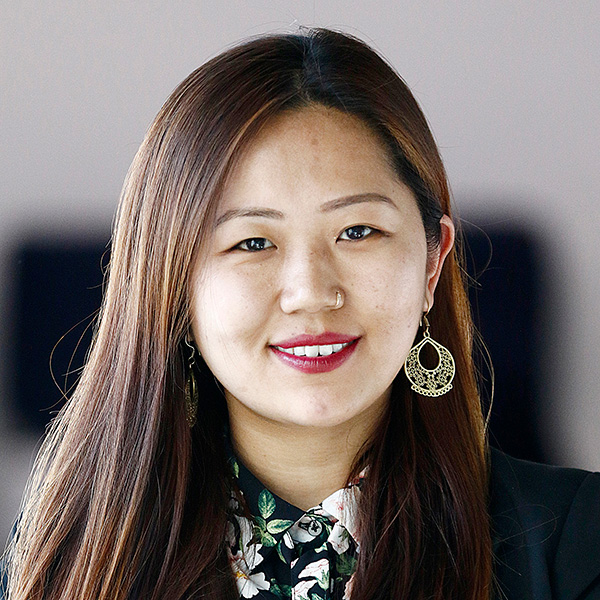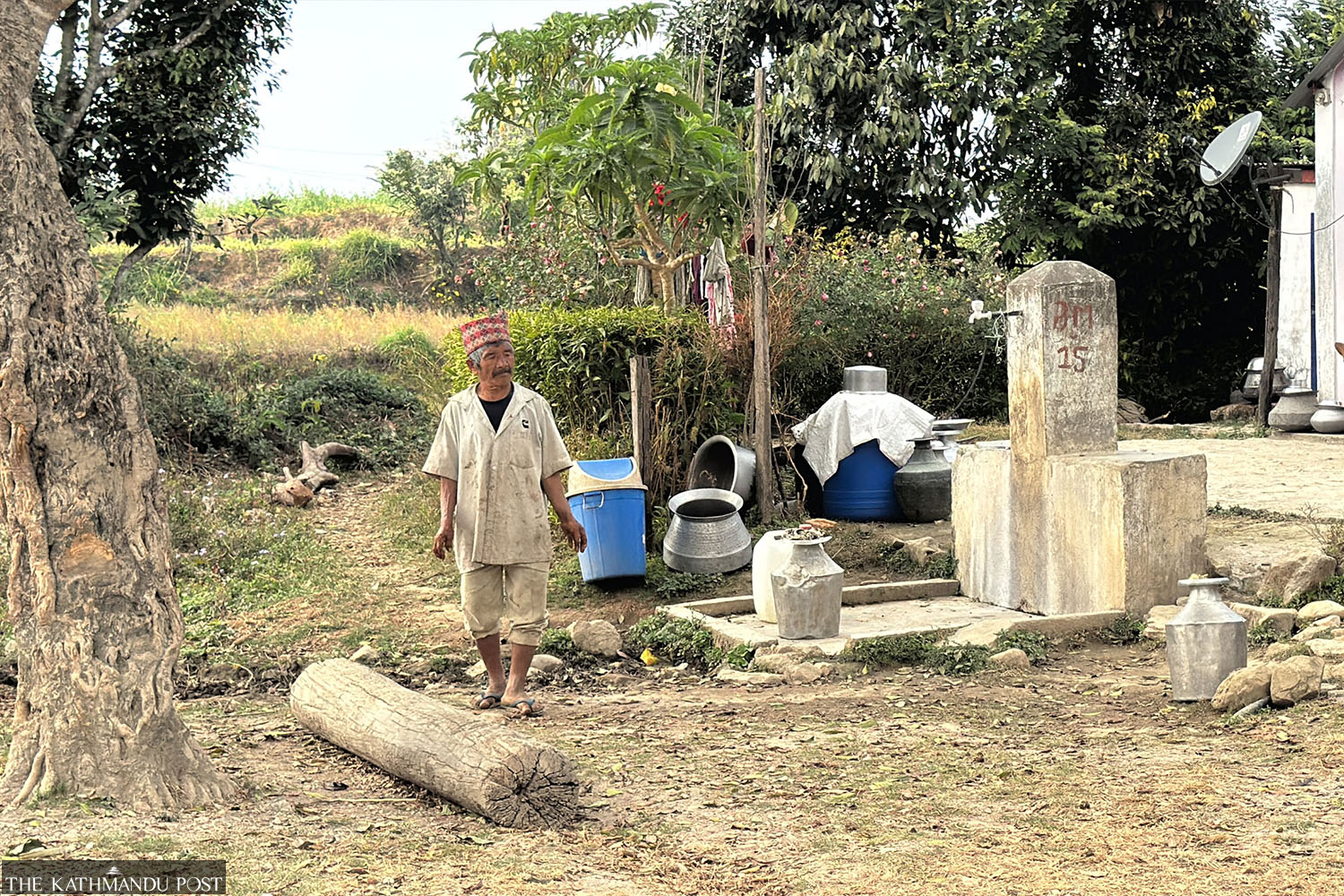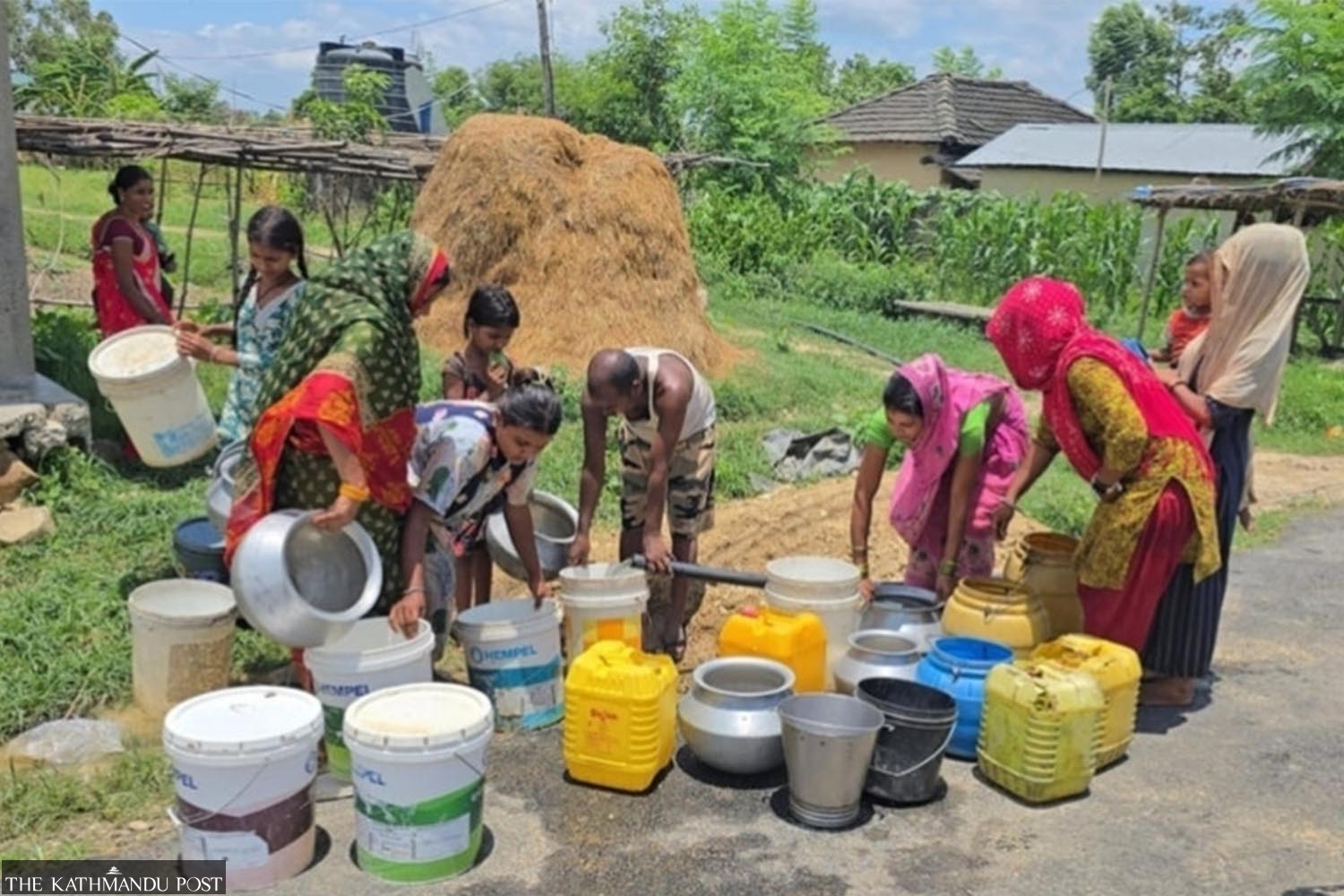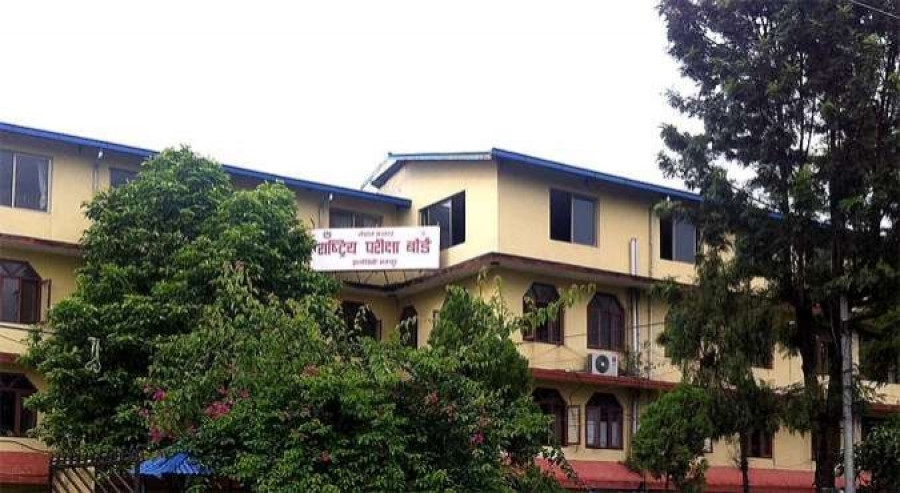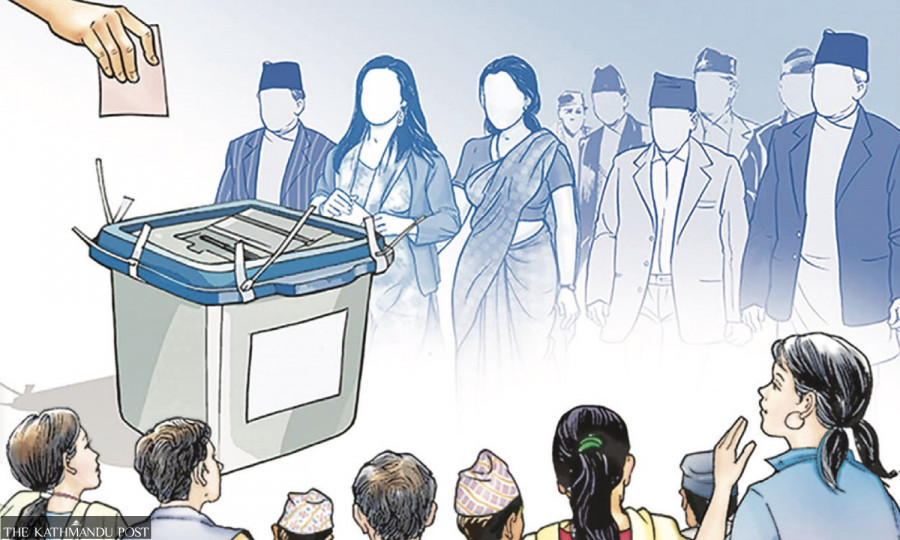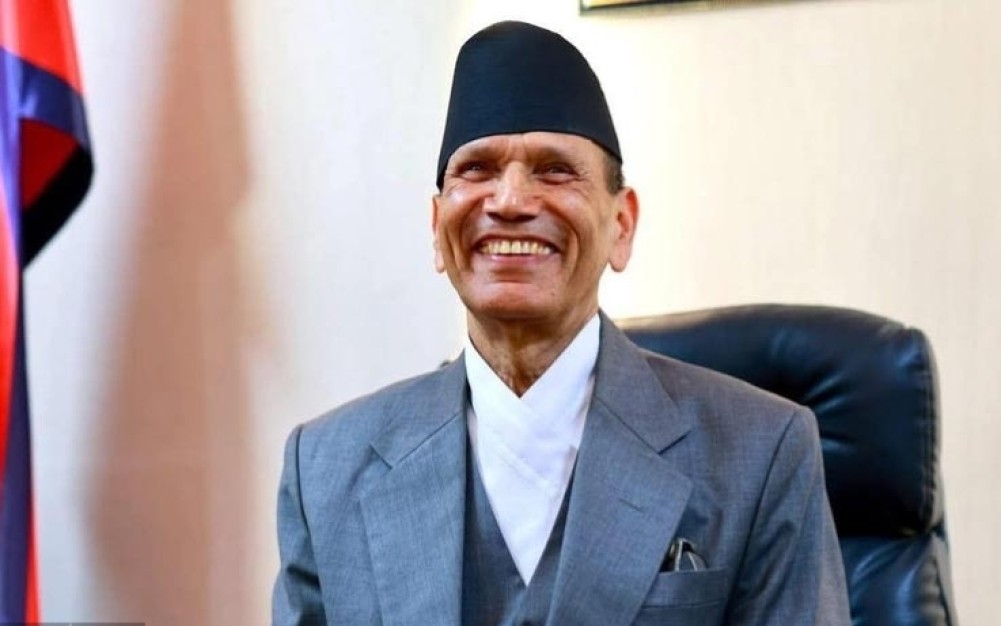National
How Nepal’s oldest university let students down after a sexual harassment case
Students at Tribhuvan University in Kathmandu filed a sexual harassment complaint but instead of taking action, university officials facilitated a compromise between the five women and the teachers accused of harassing them.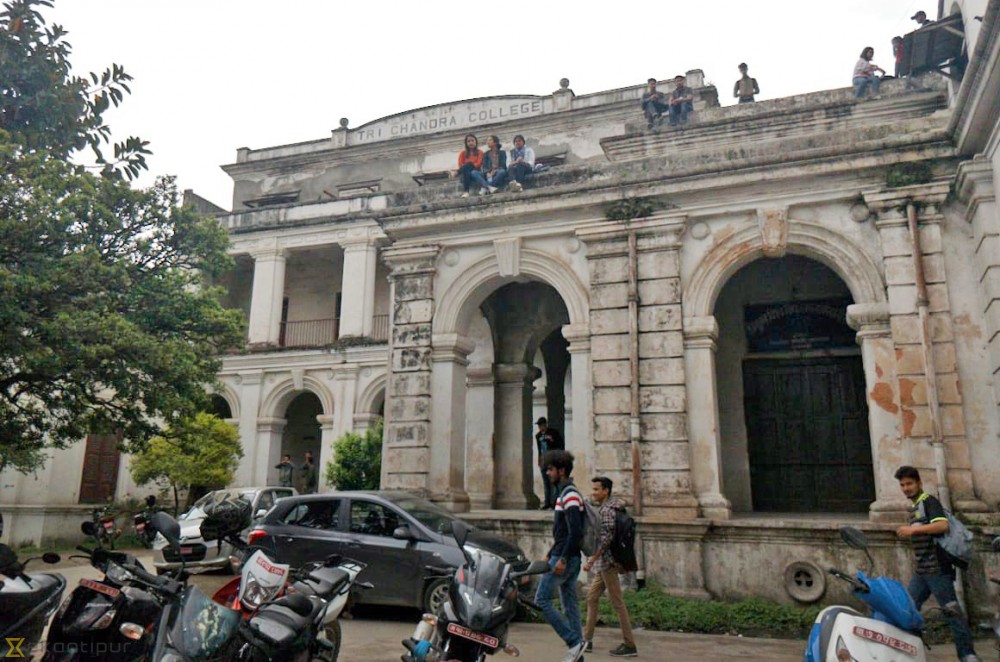
Bhrikuti Rai
Nearly eight years ago on a cloudy August afternoon, Jeevana KC was sitting for her exams at Tri-Chandra Campus. She was a graduate student of population studies at Tribhuvan University, and that day, she was taking the final paper on social justice. Everyone’s head was down, buried in the exam. Like all students seated in Tri-Chandra’s run-down classroom, KC too was writing away, while two invigilators, Prabin Kumar Jha and Dipendra Kumar Gupta, walked around the room. Halfway through the exam, she felt one of the invigilators run his fingers across her back. She paused for a bit but proceeded to continue writing. She didn’t protest.
“I was so upset,” KC said, recalling the incident from 2011. “How could he touch me like that?”
After the exam, she didn’t talk to anyone about what had happened. But later in the evening, her friend Malati Paudel, who was also in the same hall that day, told her that the invigilator had touched her inappropriately as well. Later, Malati said six to seven women in that classroom told her they were harassed by the two invigilators that day.
The following day, Jeevana KC and her friends decided to file a complaint of sexual harassment against Jha and Gupta. In an interview with the Post, the women said they spoke out hoping others would also be encouraged to speak about similar ordeals, and maybe get institutions like Tribhuvan University to take sexual harassment seriously. But what happened in the weeks and months that followed crushed their fighting spirit and resulted in a mere apology letter—facilitated by the university—from the two invigilators.
Last February, nearly eight years after the sexual harassment case and the subsequent inaction, students and heads of departments of the university gathered at the central campus in Kirtipur to start a conversation about sexual harassment. The interaction programme, where students chastised the university administration for failing to adequately address concerns about sexual harassment in the past, including the one that happened in 2011, came in the wake of articles and media reports about sexual harassment of students by Krishna Bahadur Bhattachan, a senior university lecturer.
An investigation by The Kathmandu Post found previously undisclosed details of the chain of events that unfolded since the students filed a complaint of sexual harassment at Tri-Chandra in 2011, which ultimately resulted in the case being withdrawn. The findings are based on interviews with the women, their friends who were in the same examination hall, former and current Tribhuvan University and Tri-Chandra Campus officials and activists who were involved in the legal proceedings. All of them told the Post that direct and indirect threats to the women and the lack of a mechanism to handle sexual harassment complaints in the university led to a “half-hearted” compromise.
Denial and threat
Jeevana KC remembers being resolute when she and her friend decided to complain about the teachers’ behaviour. They first went to the Tri-Chandra administration, but according to Purnima Neupane, Jeevana’s friend who was seated next to her during the exam that day, the administration was initially hesitant to file the complaint. Disheartened by the college’s response, the women held a press conference, and then went to the police and the Women’s Commission, the National Human Rights Commission, and eventually filed a case at the Kathmandu District Court.
“Initially we thought we would get justice, but within a few days, we realised it was not going to be that easy,” said Jeevana KC, who moved to Australia a few years ago.
It was only when the women gathered support from other classmates—both men and women who were in the same examination hall—that the complaint was registered. A committee was then formed at Tri-Chandra to investigate the allegations. The Post found footage of an episode from the TV show Kantipur Aaja, in which the women, the two men accused of sexual harassment, and Tri-Chandra professors speak about the allegations. The episode was aired a week after the incident took place.
“During the exam, we are under so much pressure that we sometimes didn’t even realise that the teacher might be trying to touch us,” Mamta Limbu, another graduate student of population studies who was sitting for the same examination, says in the video. “In fact, it was our friends sitting behind us who noticed such behaviour first.”
Limbu was among the five women, along with Jeevana KC and Purnima Neupane, who filed a sexual harassment case at Kathmandu District Court against the two teachers. The women describe similar patterns of harassment: inappropriate touching during the exam while they were seated, and while they re-entered the classroom after a water or toilet break. In the court documents and in the video, the women say how uncomfortable and stressed they were throughout the exam. None of them thought protesting there would have worked in their favour.
“The situation we were in didn’t allow anyone to protest because of the fear of getting expelled if you angered the invigilator in any way,” said Purna Pulami, defending his friends’ decision to not protest in the examination hall.
Neupane also recalled being harassed during the exam in the same video. “The two men sexually harassed us throughout the duration of the exam,” she says. “They touched us inappropriately, tried to extort money from us in exchange for help with our paper, and even threatened to expel us from the examination hall if we didn’t them give our numbers, all of which made us extremely uncomfortable.”
Speaking to the Post in a phone interview and over text messages, Neupane reiterated what she said in the video and in the court documents about the harassment she and her friends were subjected to eight years ago. She even recalled how she saw one of the invigilators trying to brush his fingers against KC, and how stressful it was trying to finish the exam. Neupane was seated next to KC on the same bench that day.
“He tried to touch me inappropriately when I asked for extra paper, after which I moved to the corner of the bench towards the wall,” said Neupane, who moved to the United States for higher studies in 2013. “And I could see what he was doing to Jeevana.”
But Jha and Gupta have repeatedly rebuffed the women’s allegations as baseless, both in the TV clip and in court documents. Their defence was that they caught the women cheating during the exam.
“They requested us several times to let them cheat or else they would fail, but we said we couldn’t let them do so and snatched whatever notes they were trying to copy from,” Jha told Kantipur Aja.“The female students managed to bring in notes, took it out of their sensitive body parts and we snatched it every time they did that.”
However, Pulami and Chandra Gurung, who were also in the examination hall, told the Post they don’t remember the invigilators snatching any notes. “If there had been chaos because of a cheating confrontation, I wouldn’t have forgotten it,” Gurung said.
Speaking to the Post at Tri-Chandra, Gupta, who still teaches part-time there, refused to budge from the statement he made eight years ago.
“It’s the women who are at fault,” Gupta said. “We didn't do anything. The women accused us of sexual harassment because we caught them cheating.”
Gupta didn’t confirm whether or not he and Jha actually apologised at that meeting.
Without getting into the details of what happened, he went on to say that it was actually the girls who accepted their “mistake” during a meeting at Tribhuvan University, after which charges at the Kathmandu District Court were withdrawn.
“We came to an agreement,” Gupta said.
In the court document, Jha, who was then a part-time teacher at Tri-Chandra and has recently joined Tribhuvan University’s Monitoring Directorate, says, “All I did was stop them from cheating. They [the women] are prejudiced against us because we caught them cheating and they have therefore used newspapers and TV and other medium against us.”
The Post attempted to reach Jha for several days, but his phone was switched off.
In the video, then assistant campus chief, Shankar Bhandari, assures that his team would get to the bottom of the matter.
“If the accused are proven of wrongdoing, strong action will be taken against them,” Bhandari says in the video. “But if the students are making accusations against people from such a dignified profession for their own interest, then action should be taken against those women too.”
Nearly a month after the complaint was filed, the committee sent a report to Tribhuvan University’s vice chancellor’s office, stating they didn’t find any evidence to back up the allegations. The report summary sent to the court also said that the investigation committee tried to meet the women several times but “we were never able to get hold of them.”
Before the women decided to speak to the press and file complaints with different agencies, they chose Neupane to take the lead when it came to media appearance, or responding to emails, letters or phone calls from authorities. Neupane told the Post this was done to avoid duplication of responses and to make things less chaotic for everyone involved. So she was shocked when the investigation committee said it could not reach her. The women said the Tri-Chandra administration didn’t call or reach out to any of them during the investigation.
“They might have formed a committee to look into our complaint, but we were never informed about their requests to get in touch,” Neupane told the Post.
While the women waited patiently to hear from the administration during the investigation process, they were bombarded with calls and messages from unknown numbers. Sometimes it would be student leaders from Tri-Chandra threatening them to withdraw the complaint and the court case. Other times it would be professors from the university requesting the students to drop the charges in exchange for monetary compensation.
Neupane says she might have been targeted more than others because she was the one who had been the most visible while speaking about the incident.
“They would tell me I should think about my life ahead and how talking about these things would affect me because I am a woman,” Neupane said, recalling those phone calls.
It wasn’t just students who were receiving such calls, said Radha Paudel, an activist whose organisation helped the women with legal recourse for the case.
“I remember getting a call from a student leader who said I was trying to taint their college’s reputation, and that I should back off from the case,” Paudel, who currently heads Radha Paudel Foundation, told the Post in January.
Nonetheless, the women persisted.
During this time, the only source of support for them from the university was the then head of the Central Department of Populations Studies, Prem Singh Bisht. He supported them when they organised the press conference, listened to them without questioning their intent, and took the matter to the Vice Chancellor’s Office.
“They were our students and it was our duty as their guardians to take their concerns seriously,” Bisht told the Post in a recent interview.
Staged apology
Two months after the women had filed their complaint, a teacher from Tri-Chandra called Neupane and hinted that the two invigilators were sorry for what they did and were trying to apologise. They were also willing to pay for all the financial expenses the women might have incurred since the incident, the teacher told her.
“We hadn’t been doing it for money, so we rejected the offer right away,” Neupane said.
Besides these threats and calls for compromise, the women were also being questioned by certain sections of the press about their character and their motivation behind filing a sexual harassment case. They felt victimised once again.
“Our morale was crushed a little bit that day,” Neupane said about their first interaction with the media at the press conference a day after the exam in August 2011.
This line of questioning and re-victimising continued for months. Some said they should have protested at the examination hall itself, while others said they had made up these allegations because they were caught cheating, a claim that the women have repeatedly denied.
“I am not a board topper, or a university topper, but I was and I am a good student,” Neupane said. “I have never ever cheated on my exams.”
University officials said there was no institutional mechanism to deal with sexual harassment claims so accepting an apology was the best option they had.
Despite all of this, the women said they were determined to fight back. But as the narrative of victim blaming became sharper and voices from the university and Tri-Chandra’s upper echelons to drop the charges grew stronger, they said their fight started looking bleak.
“So many things happened in those five months that it was exhausting,” said KC. “We were determined to fight back, but we lost all hope.”
The women said they started feeling helpless, not just because of the lack of support and calls for compromise with the perpetrators, but also because of how slow the legal process was. Some women were from outside Kathmandu and were having a tough time constantly hopping on a bus to the capital from their home districts for the court process. Furthermore, they had just completed their master’s degree, so they were job hunting, applying for higher studies abroad and also working on freelance gigs for different research projects.
After much deliberation, the women said they half-heartedly came to the decision to accept the teachers’ apology and drop the case.
But they had their conditions. They wanted the men to apologise for their behaviour in front of the media and university officials, and also admit that they had made up baseless allegations of them cheating during the exam. Once they put forth their conditions, a meeting was organised at Tribhuvan University, where Jha and Gupta apologised in the presence of university officials, the then head of department Bisht, Tri-Chandra officials, and students leaders. The women said they don’t remember the media being present that day.
The meeting lasted for nearly an hour. According to Neupane and KC, the teachers signed the letter they had drafted, promised not to repeat their behaviour, and apologised.
Bisht and former student leader Sandip Adhikari, who were both present at the meeting, confirmed what the women told the Post. Former Tribhuvan University vice-chancellor Hira Bahadur Maharjan also said he was aware of the case.
“I don’t remember the event in details, but yes, the case had come to us,” Maharjan said. “But I am not sure if we took any action.”
But the women say they still vividly remember how they felt during that meeting.
“I had mixed feelings being in the room that day,” said Neupane. “Because that’s not how we wanted it to end.”
Looking back on their decision eight years ago, the women say none of them wanted to accept the apology. But the structures and situations they were in didn’t leave them with much choice, something they say wouldn’t have changed even if they had persevered.
“I don’t regret withdrawing the case due to frustration,” said KC. “If we hadn’t dropped the charges in 2011, I believe we would still be fighting today.”
Have you experienced sexual harassment at work or have a confidential tip you’d like to share? You can securely get in touch with The Kathmandu Post editors using our encrypted email account [email protected] or [email protected].
Read related stories:
— Maths teacher at Lalitpur Madhyamik sexually abused young girls for decades
— Tribhuvan University lecturer sexually harassed female students for years
— Tears and anger after revelations about a teacher's history of sexual abuse
— Fed up by harassment, Nepali women are going online to share their #MeToo stories




 21.12°C Kathmandu
21.12°C Kathmandu